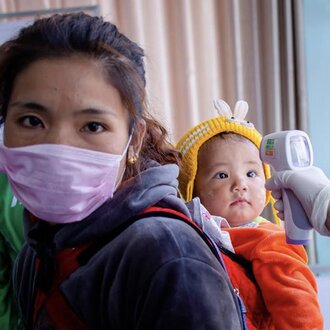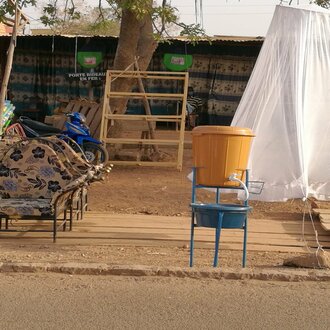While the gradual lifting of the lockdown is underway in Switzerland, developing countries are facing enormous challenges. Three Helvetas staff members from three continents regularly report on how COVID-19 is changing the daily lives of people in Myanmar, Burkina Faso and Peru. Part four of this extraordinary diary. (Read Part 1, Part 2, Part 3.)
Rigorous lockdown would mean starvation for thousands of day laborers
By Peter Schmidt, Director Helvetas Myanmar
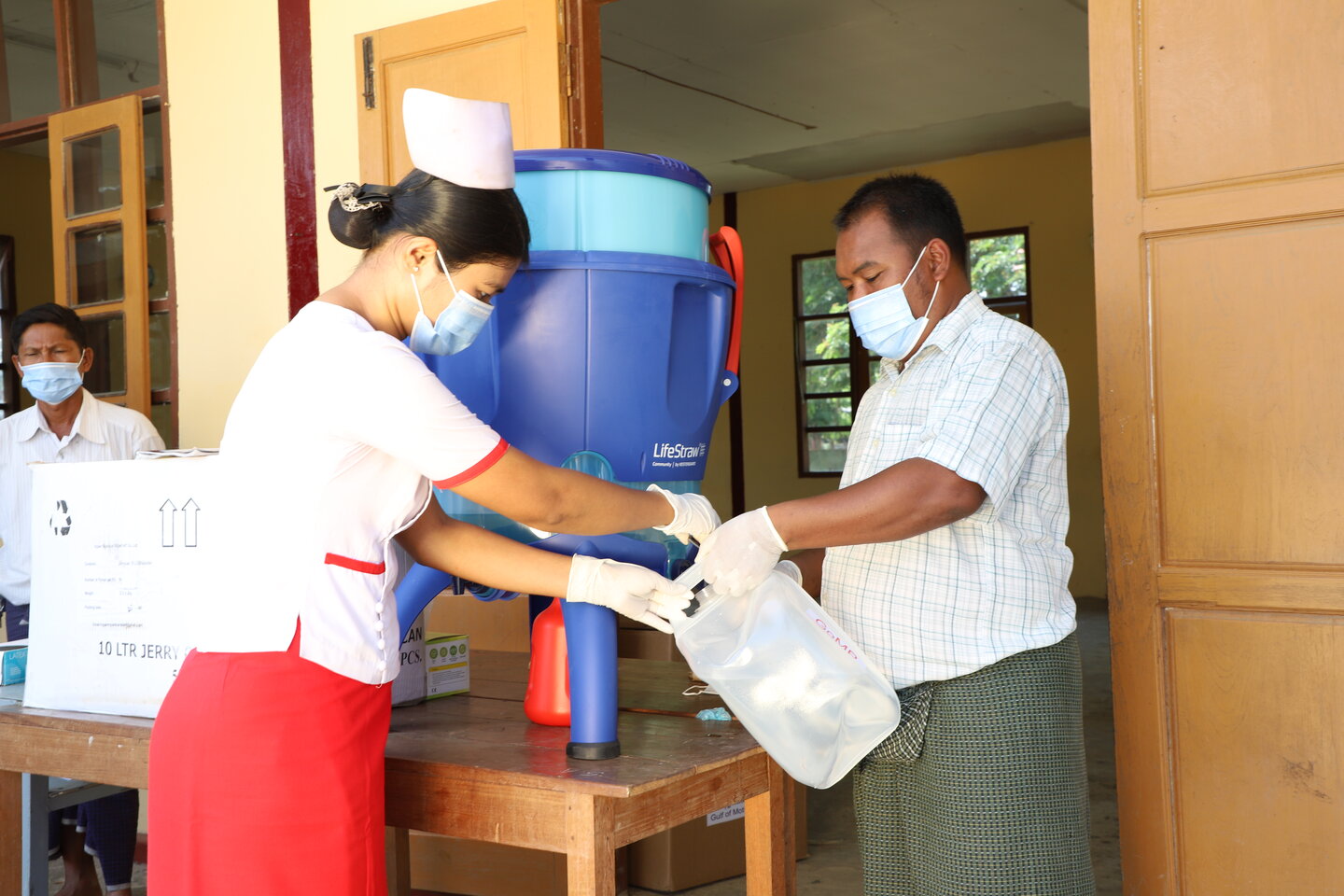
Every Swiss mountain community that thinks highly of itself can afford a multi-purpose hall. Now I have one too: my living room on the third floor in Yangon is an office, dining room and gym all in one. I haven't spoken to a person face to face for ten days. But who am I telling this, it’s the collective experience worldwide. Except I'm privileged: The light green plastic box is still full of food, there is enough drinking water for another ten weeks, and who here in Myanmar's capital city has as much space as I do!
Helvetas informs about the danger with cartoon videos and campaigns
Last weekend (19.4.) the number of confirmed coronavirus infections exceeded the hundred mark in Myanmar. The authorities, international community, civil society - everyone is preparing and doing what they can. Helvetas and its donors have spent 150,000 Swiss francs within a few days to make the population in remote areas aware of the danger - among other things through cartoon videos on Facebook, posters in the villages and information campaigns in the tea factories that we support.
The government faces a complex dilemma: a rigorous lockdown would be the best prevention, especially given a health system with limited resources. And at the same time, it would mean a total loss of revenue for all the thousands of day laborers who live from hand to mouth. Hungry people, especially in a megacity like Yangon, could cause social unrest. The government is distributing rice, cooking oil and bags of legumes: a drop in the ocean.
The government will not declare a state of emergency
Inspired by other countries, the domestic economy is supported: 70 million dollars have been made available for low-interest loans. The comparable amount in Switzerland is about one thousand times higher for a population that is just one-sixth that of Myanmar. During the last ten days, the Water Festival and the Burmese New Year, the government has called on all people to stay at home voluntarily. Areas, where corona cases have been discovered, have been cordoned off. And since the beginning of this week, there is a ban on gatherings of more than four people - unless you are on your way to work, shopping or to the doctor. The restrictions remain vague, varying from place to place. However, the newly imposed curfew at night is strictly enforced.
The democratically elected government will be careful not to declare a general state of emergency. For like the sword of Damocles, constitutional article 40b hangs over the dilemma: in an emergency, when the lives and property of Myanmar's citizens are threatened, the army has the right to take over the power.
Creative and innovative solutions are needed
By Franca Roiatti, Helvetas communications coordinator for West Africa
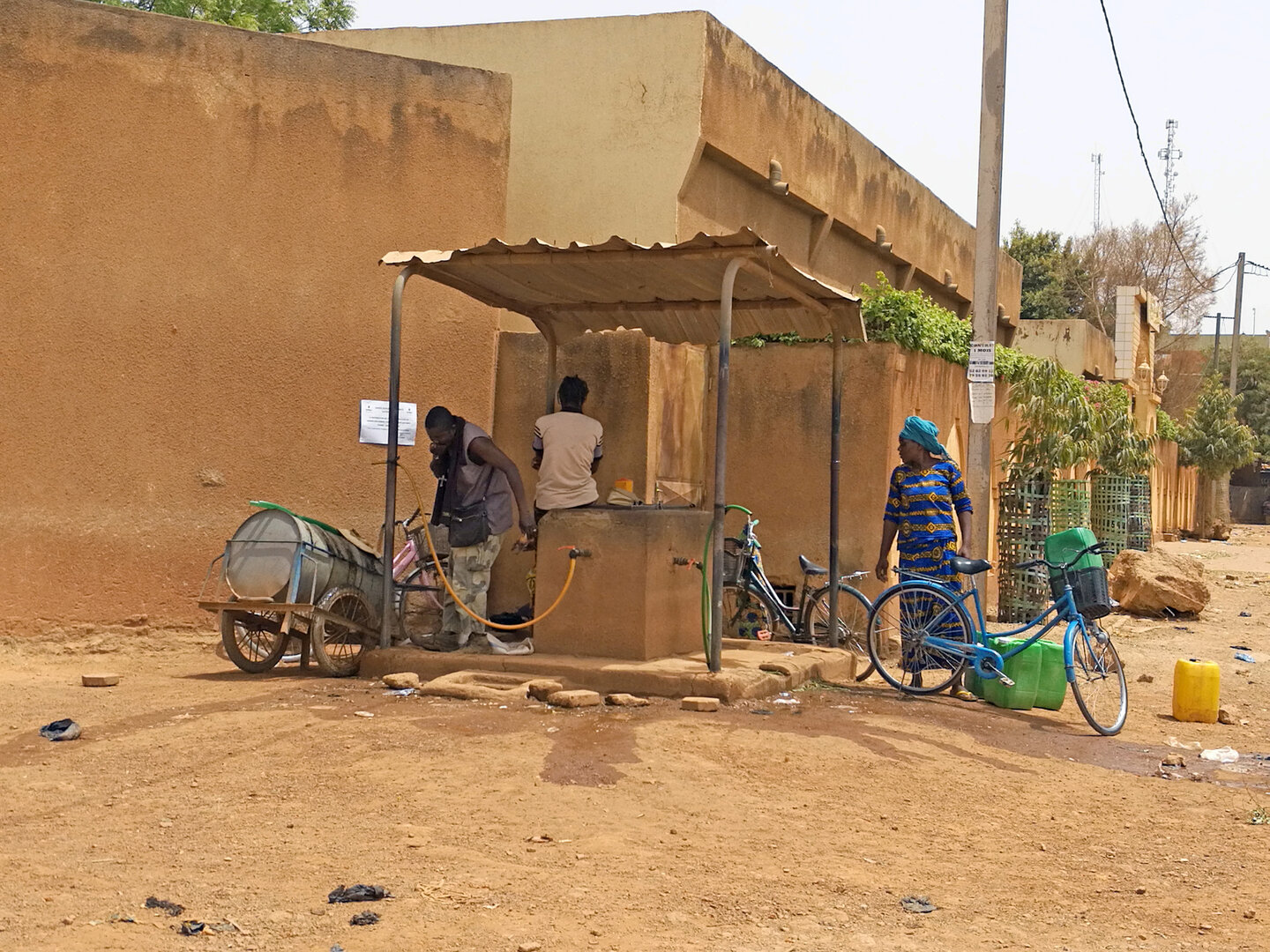
Six weeks after the first COVID-19 cases were discovered in Ouagadougou, the situation fluctuates between emergency management and the attempt to cautiously return to normality. Groups of young volunteers are conducting awareness campaigns and information on preventive measures is spreading - sometimes in a rather unconventional way. One example is the markings on motorcycle lanes. They remind motorcyclists to keep their distance while waiting at traffic lights. From April 27, wearing masks is compulsory. Since it is difficult to import them, the government has decided to use local forces. Weavers all over the country - mostly women - make the traditional fabric "Faso Danfani" from a special cotton thread to create reusable masks.
4 children at one desk - how can you keep your distance?
The government has shortened the curfew hours, reopened the central market in Ouagadougou and is preparing to reopen the schools under a number of conditions: availability of handwashing equipment, and a requirement for teachers and students to wear masks provided by the state. "It will not be easy. Many classrooms, especially in rural areas, are overcrowded. How can we maintain social distance when four children are sitting at the same desk," asks teacher Paul Ilboudo. However, other solutions, such as online learning offered by private schools, are simply impossible in areas without electricity or access to the Internet.
A plan has been drawn up to help businesses, informal vendors and vulnerable households cope with the economic consequences of Corona. For example, the state has suspended tax payments, takes over the rents of small shops that have been forced to close and pays certain electricity and water bills. Water from public wells should also be free. The package of measures is worth more than 631 million Swiss francs, an enormous sum for a country whose annual budget is half that of the city of Zurich. These measures are laudable, but they also remind us of the inequality that exists in the country: many families are not even connected to the electricity grid and have no running water at home - it is of no use to them that the government would pay the bills. In addition, the public wells often carry (almost) no water in the dry season.
Helvetas helps to make soap and to renovate water points
Conditions are even more difficult in the villages that receive internally displaced persons who have fled the violence of armed groups. Existing wells and pumps, which barely meet the needs of the inhabitants, must now respond to the increasing demand for water. This is why Helvetas, through its emergency aid project WASHPRO, is rehabilitating ten water points that will supply at least 3000 people with water. Helvetas is also organizing training courses on soap making. In this way we are pursuing a double objective: to increase the availability of soap in the villages and to enable the women to earn some money by selling the soap.
The solidarity throughout the country is remarkable; individuals, organizations and businesses donate food, hygiene kits and money for the most vulnerable. But the need is enormous. It is estimated that at least 1.6 million people will need food aid this year, four times the corresponding period in 2019, a figure that could exceed 2 million by August. The main reason is the worsening security situation in the country. A problem that is even more difficult to manage than the Corona crisis.
Several hundred meters of line in front of the supermarkets
By Kaspar Schmidt, Helvetas Programme Advisor Peru
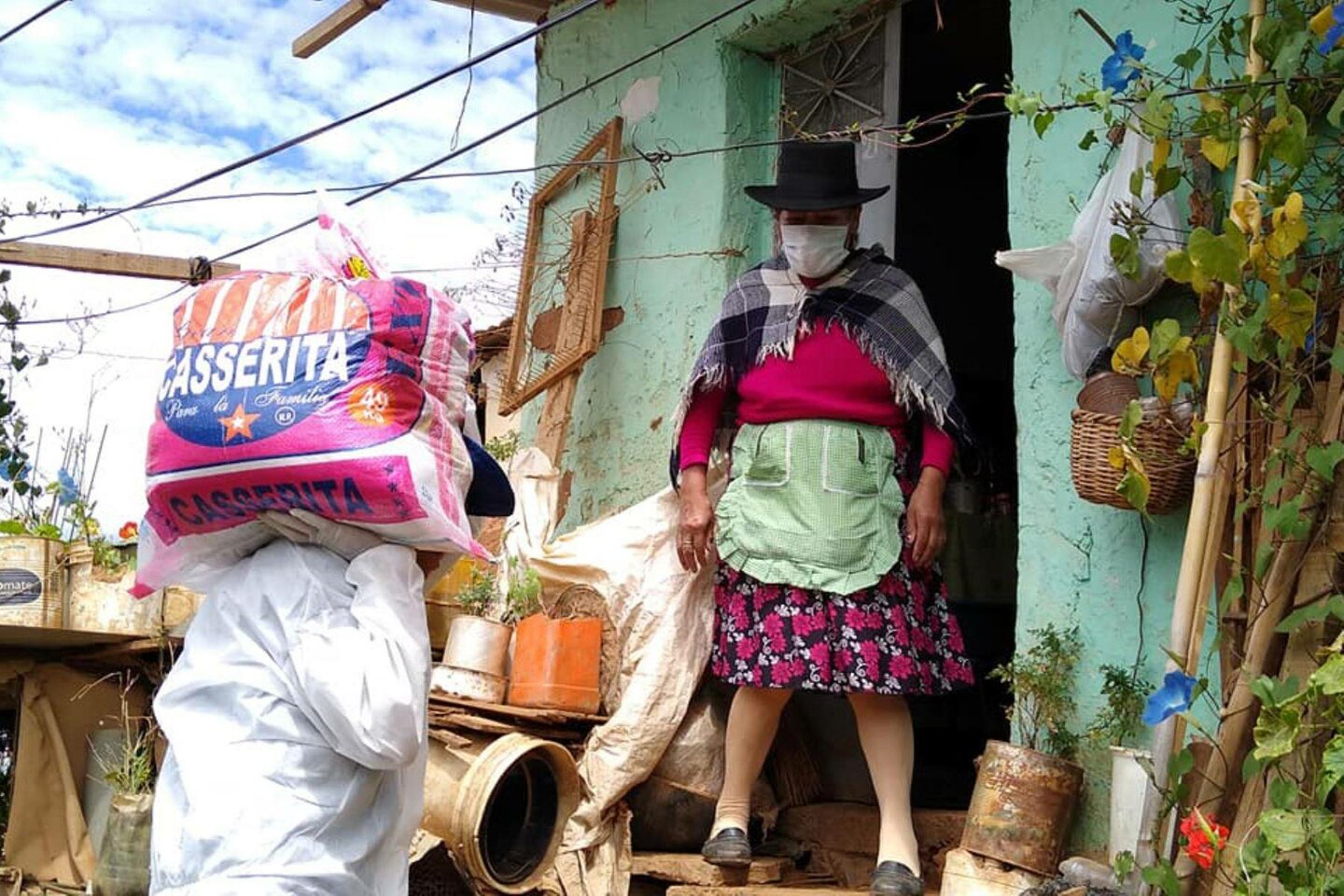
Week five of the emergency regime in Peru, which has already been extended twice, comes to an end: My family has not been out of the house since mid-March. To ride our bikes, we go with the children to the underground car park. In front of markets and supermarkets here in Lima, queues form, often winding several hundred meters through the quarters. The economy stands still for the most part. Private traffic is prohibited almost everywhere. The people who work in the informal sector as day laborers are the first to feel the consequences of the standstill, and they feel it very badly.
Out of necessity: back to their hometowns on foot
Due to a lack of income to pay for food and accommodation, several groups of hundreds of men and women who had come to Lima from rural areas in search of education and income have been walking to their homes over the last few days. Some of these are located several hundred kilometers away from Lima. An actual return migration movement has begun. Security forces have stopped some of these return migration trains en route and put the participants in quarantine. For fear of infection, not all communities welcome the return emigrants from Lima.
Indigenous people seek shelter in Amazon basin forests
In the Andes and in the forests of the Amazon basin, many indigenous communities have isolated themselves to protect themselves from the virus. With the onset of harvest season for important products such as potatoes or quinoa in the Andes or cocoa in the lowlands, the question arises as to how local farming families can sell their produce to external buyers - a difficult balance between isolation for self-protection and contact with the outside world to secure essential income.
Help for the safe sale of agricultural products
The projects implemented by Helvetas in the value chains of cocoa and other agricultural products can now contribute to the development and application of measures for the secure handling of such sales. Yes, we are all becoming increasingly aware of just how serious the many and varied consequences of this pandemic and crisis will be. And how long these will probably continue to occupy us in our projects in Latin America.




